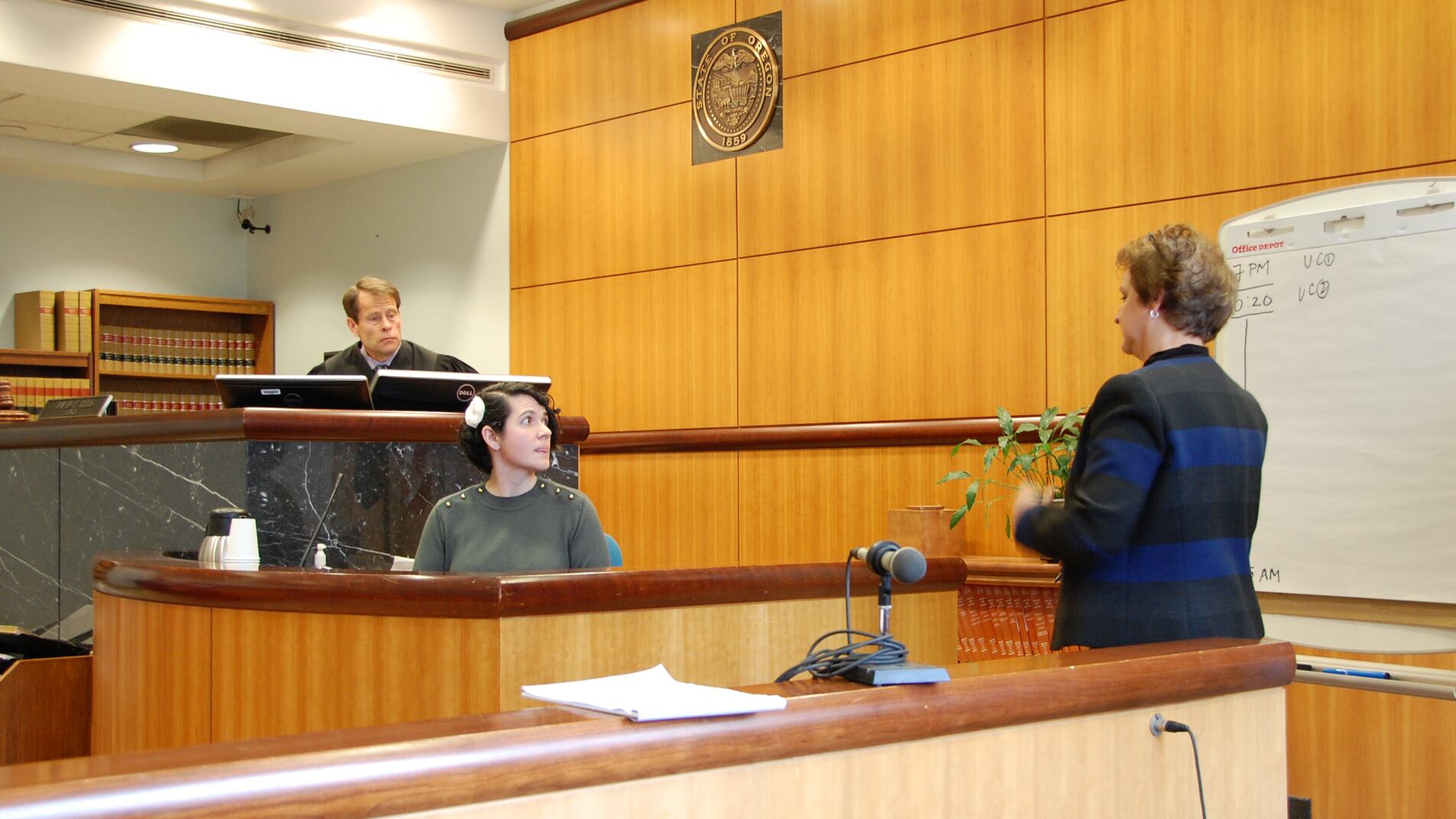Prosecutors concluded their sexual assault case against Charles McGee and Aubre Dickson this morning in Multnomah County Circuit Court.
The state called Cole Mills, the seventh supporting witness to recount what Erica Naito-Campbell told them in the weeks following the alleged assault.
Prosecutors briefly recalled Natio-Cambell, 38, to the stand to clarify some of the details of her meetings with a therapist in the months after the alleged incident. The prosecution then rested its case.
Christine Mascal, McGee's attorney, and the father-and-son team of Stephen and Jacob Houze, representing Dickson, told Judge David Rees they would call no witnesses, including their own clients. (Defendants in criminal cases often do not take the stand.)
"Mr. Dickson has elected not to testify," Stephen Houze told the judge.
"You understand that is your decision and not your attorney's?" Rees asked Dickson.
"Yes," Dickson said. Mascal and McGee then made similar statements.
After closing arguments, which should conclude this afternoon, it will be up to Rees to arrive at a verdict for both men, because both waived their right to a jury trial.
Related: Five things we've learned from the first week of a trial with heavy racial and social ramifications.
WW asked Judge Edward Jones, who retired in 2017 as Multnomah County's chief criminal judge, about the mechanics of a so-called "bench trial" in which the judge is both the referee and the sole decider of the outcome of a case.
Here's a brief interview with Judge Jones, edited for brevity and clarity:
WW: When the trial is over, what process does a judge in a bench trial follow?
Edward Jones: It varies greatly. Some judges will just promptly announce a verdict. Others may want some time, even perhaps a day or two, to review the testimony.
Does the judge repair to the judge's office until reaching a decision? Or take some set period of review?
Yes, the longest such period I'm aware of is six weeks. The lawyers went crazy.
Does the judge typically produce an explanation for his or her decision or simply a verdict?
Generally not. Juries aren't expected to explain their verdicts and judges, acting as the finder of fact, also aren't expected/required to explain. Judges are cautious about explanations. It is possible to explain yourself into a reversal that would not have happened if you had kept your mouth shut.
Generally speaking, do judges enjoy bench trials or do they prefer jury trials?
Jury trials are more work, in the sense that errors in a court trial that are easy for a judge to account for (or ignore) may cause a mistrial when they happen in front of a jury. And instructions have to be prepared and given. On the other hand, knowing that the heavy lifting will be done by the jury makes life easier. On the "fun" standard, I'll take the jury.
Anything else people should know about the mechanics of a bench trial?
Arguing to a judge is alleged to be different than arguing to a jury. I'm not sure that is true. Judges are as prone to human thinking patterns as jurors. On the other, hand while I have seen lawyers (not before me) get on their knees and plead with the jury (with tears in their eyes) I haven't seen that happen in front of a judge alone.

